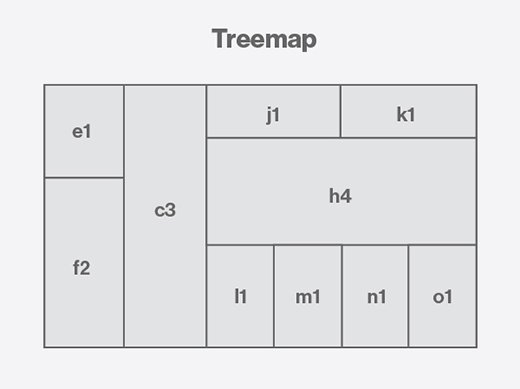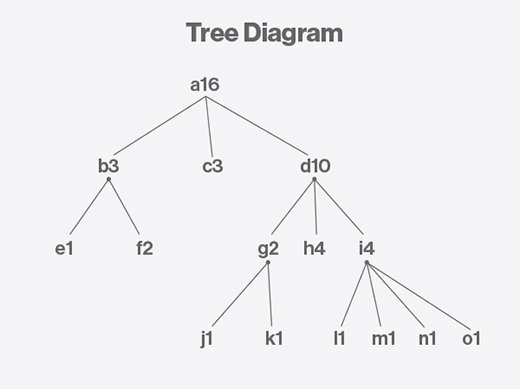treemap
What is a treemap?
A treemap is a visual method for displaying hierarchical data that uses nested rectangles to represent the branches of a tree diagram. Each rectangle has an area proportional to the amount of data it represents.

Network administrators often use treemaps to analyze disk space use. The rectangles are generally different colors to make differentiating each data set simple. When done correctly, this makes it easy to identify patterns in the data that would otherwise be difficult to notice. Treemaps can display thousands of items on a screen at once because they make efficient use of space.
A treemap is created from a tiling algorithm designed to give each rectangle an aspect ratio of one and create a sense of order in the display of the input data. Unfortunately, these properties have an inverse relationship, so as the aspect ratio is optimized, the ordering becomes increasingly random. Another problem is that rectangles can become too elongated, making it difficult for the viewer to compare and select each data point.

Treemaps are an important feature in WinDirStat, a disk space analyzer and cleanup tool for Windows operating systems. There are six primary rectangular treemap algorithms, including the binary tree, mixed treemaps, ordered, slice and dice, squarified, and strip.
TreeMap is also the name of a function in Java, but it is not the same as the visual method for displaying data.






